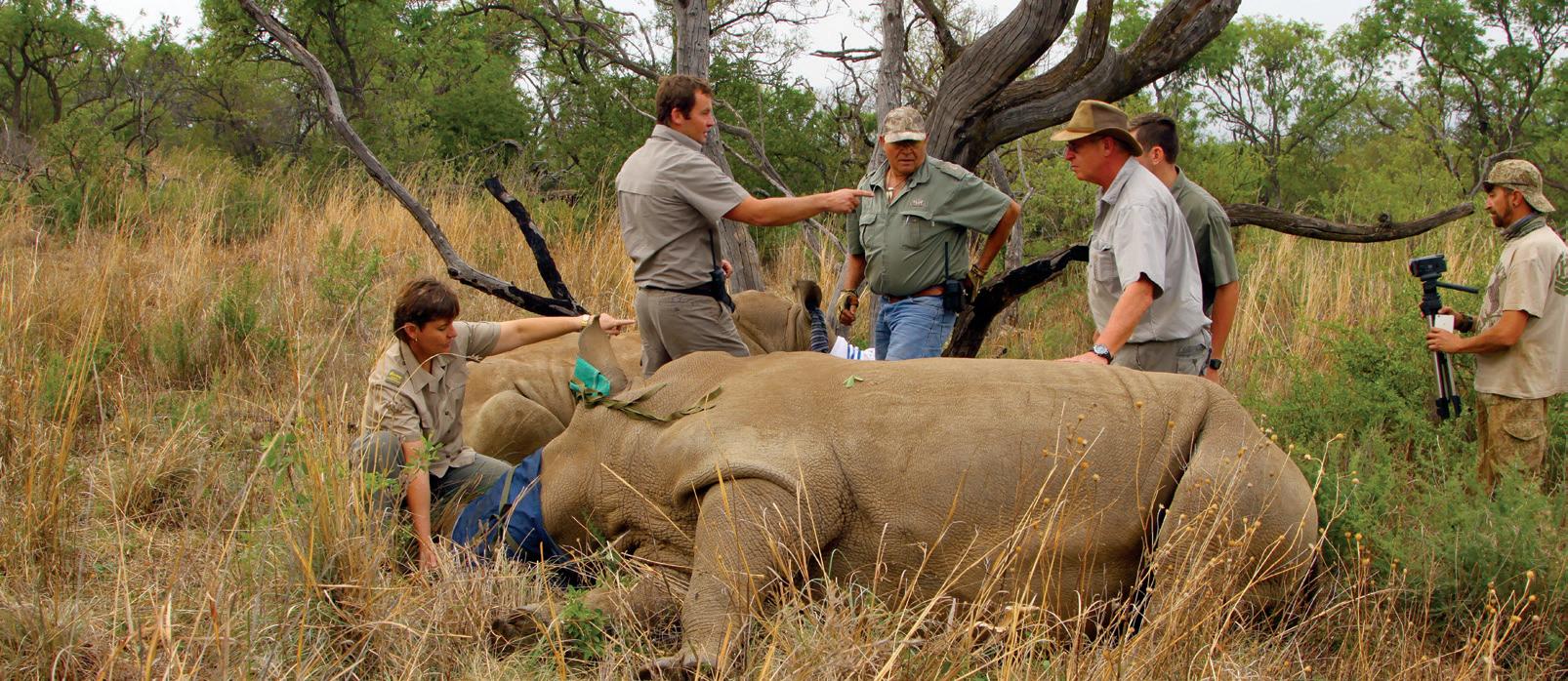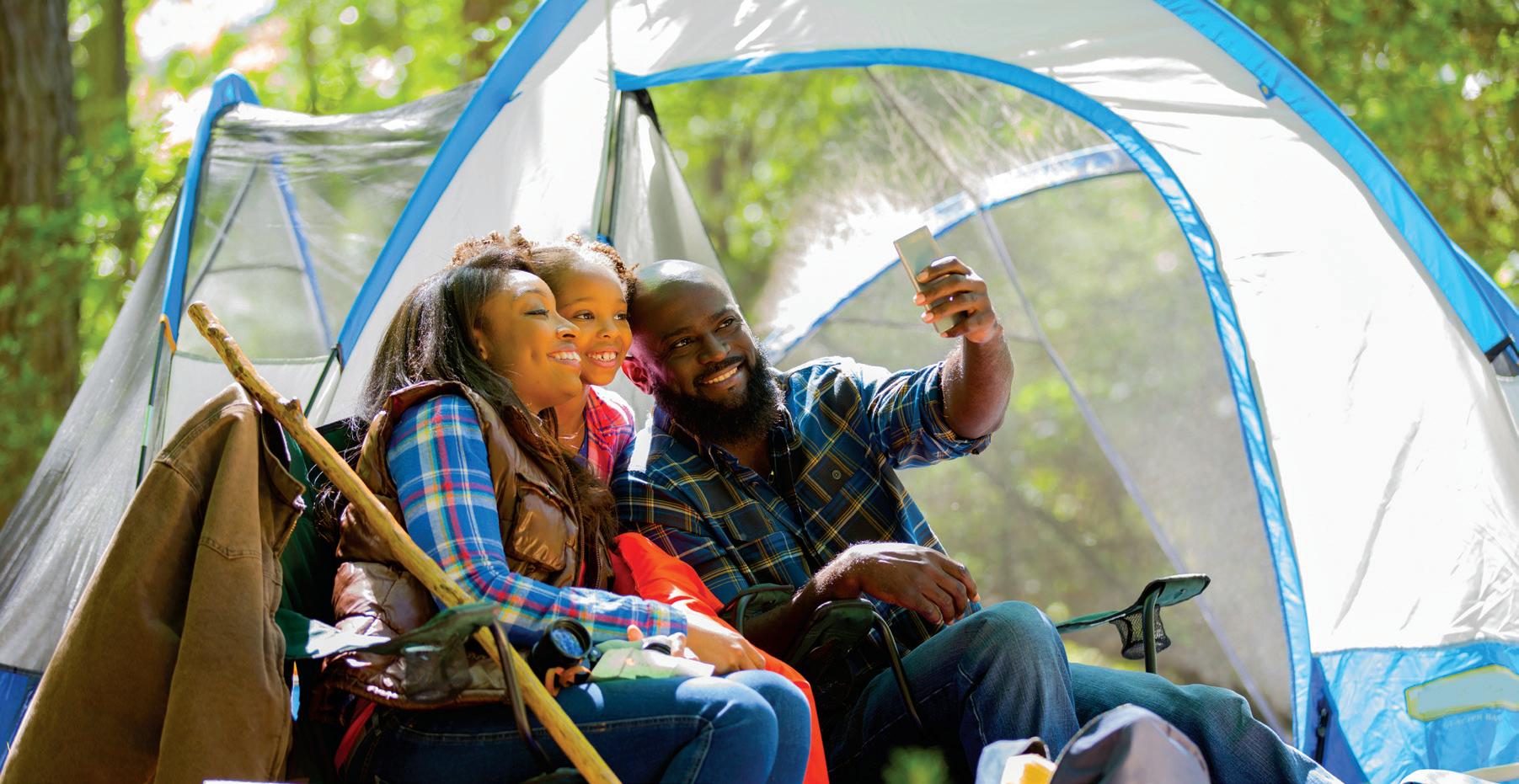
7 minute read
COVID-19 Challenges & Silver Linings
MUSINGS FROM A WILDLIFE BIOLOGIST/OUTFITTER
STORY BY GREG SIMONS
WE LEFT FOR BELIZE ON MARCH 7, EXCITED ABOUT OUR FAMILY VACATION. In my wildest dreams, I would have never imagined that things would be so different by the time we arrived back home on the eve of the 13th. And by late afternoon on that next Monday, the 16th, it had become apparent that Americans were on the front-edge of being dealt circumstances that are in some ways unprecedented in this country. Massive business closures, travel restrictions, executive orders, socialdistancing expectations, complete fixation from the media, uncertainty of human health/safety, cancellation of most public events, layoffs and furloughs, and an American public that has been shackled like never. To compound the impacts of this global pandemic, we are also experiencing a colossal collapse in the oil and gas industry that interestingly took place almost simultaneously to the C-19 hit on the U.S. Our American financial economy went from being as strong as ever, to falling into a state of shambles in a matter of a few weeks.
So, what does all of this mean at the end of the day? I will not pretend to have a crystal ball, and the scope and enormity of the entire ripple-effect of this C-19 crisis is well beyond my gray matter capacity, but I will share some concise thoughts regarding how this will likely impact hunters, hunting and our conservation world.
From a business standpoint, the hunting world has been and will continue to be rocked in profound and immeasurable proportions. Sweeping international travel restrictions fell during a time when destinations like Africa, New Zealand, Australia, Argentina, Asian locations and others were on the verge of kicking off the height of their big-game seasons. With those hunting destinations principally relying on American and European (lesser extent) hunting markets to support their businesses, most of those operators will take it squarely on the chin and many of them likely will not survive the unfortunate impacts of all of this, especially those who rely on concessions where annual fees are paid for those hunting rights. In addition to the sad reality of some of these safari businesses being forced to go belly-up in 2020, the wildlife conservation consequences will be staggering in some cases. Monies from hunting have been the central thread that fund the conservation of wildlife resources in many of these international locations. Lost funding for antipoaching alone will lead to an increase in unregulated take of wildlife, not to mention the compromised success of community-based conservation which is largely supported by the safari industry. Not only will these lost revenues result in diminished conservation funding, but impoverished communities will suffer as well, resulting in humanitarian dilemmas. I hate to paint such a bleak picture, but candy-coating the inevitable outcome of much of this would be ignorant denial. . . people need to know the truth, if nothing else so that they may be compelled to carry-on with their hunting activities when provided that opportunity. The world needs hunters and hunting, plain and simple.
Domestically, there are no hunting operations in the U.S. that are fully immune to the impacts of C-19 and a hammered economy. One could surmise that things could have been worse if this C-19 crisis would have hit during the Fall hunting seasons, but none the less, there are some hunting operations that had a large volume of business on their calendar for March, April and May. My business, Wildlife Systems, Inc. (WSI), had roughly 100 hunters scheduled on various hunts from March 15–May 1, and I spent the better part of three weeks sorting out contingency plans with those clients. The idea of simply postponing hunters is not always simple.
Opposite Page: Humans are hardwired to want to connect to natural environments. As travel restrictions are lifted, society will have a need for healing, including the desire to re-connect to those areas outside the confines of bricks and mortar.
This Page: Lost revenues from international safari cancellations will result in diminished conservation funds that capitalize critical antipoaching efforts and research of imperiled wildlife species.

For outfitters who contract hunting rights from private landowners, you often have monies that are specific for one season or one term-cycle, and the financial cost of moving those hunters into the next season or term-cycle will often result in those outfitters having double the cost in their landowner fees for a certain batch of hunters, not to mention the many other costs associated with keeping the business afloat during those furloughed periods. Hunters need to realize that a postponement in dates can be financially costly to the hunting operator and can ultimately mean the difference between those hunts being profitable, as opposed to bleeding red on the margins. It is also important that hunters recognize that when they are looking at trying to salvage their paid monies during times like this, the outfitter may be looking at ways to salvage their business. . . perspective is important. When it comes to scheduling, postponements, refund policies, cancellation policies, finding replacement hunters, meeting financial obligations and working through the breadth of this all, these can be complex and difficult decisions that affect all parties involved.
For WSI, in recent weeks and right now, we have been able to work within the allowable guidelines and we continue to host hunts for those clients who were/are able to stick with their original plans, and we have done so by incorporating additional practices that address the various human health/safety concerns during these times. Thus, times like these force proprietors to sharpen their approaches at ensuring best-management practices in order to best serve their clients, which hopefully elevates industry standards at the end of the day, which is a good thing.

A relatively small percentage of people across the U.S. realize the significance of what the health of the oil patch means to the broad American economy. Living in Texas, where oil and gas production is more visible, we tend to understand and appreciate how central a healthy oil and gas industry is to our state-wide and national economies. With the current crash in the oil patch, I am concerned that our ability for the U.S. to bounce back when these restrictions are lifted will be largely stymied by trough-level performance in the oil and gas industry. The ripple-effect of a depressed energy industry stretches from one side of the pond to the other. Thus, again from an outfitting standpoint, I suspect that our Fall hunting seasons will feel this economic pinch and that the outfitting industry in the U.S. will be pointing toward sometime in 2021 as their possible rebound period.
From a silver-lining standpoint, I do feel that our American public will have a need for “healing” in a variety of ways, as we move forward into this Summer and Fall. Humans are hard-wired to want to connect to those natural systems that are largely located outside of the metro areas, where there is open space, wild things, unscathed areas and natural venues where hunting, fishing and other outdoor activities are found. I suspect there will be an emotional and spiritual appetite to re-connect with these natural areas after being so encumbered, and the desire to reclaim our lives will be stronger than ever. Human health is not simply a function of physiological wellbeing but is also inextricably tied to emotional and spiritual health, ecological health, social health, familial health and financial health. This all kind of reminds me of the notion that there is a difference between a house and a home, and it takes a balance of important values (some that are measurable and some not so) to create a home, as opposed to the bricks and mortar of life. Since mid-March, Americans have largely been denied needed balance, and I suspect that our American resolve will drive us in a direction of re-establishing that needed balance, and with that, we will likely see an urge for people to hunt, fish, camp, hike and seek pleasures that we love and dearly need.
Our American fabric was woven through a history of challenges de jour. Those historical challenges were painful in many ways, with an untold number of citizens giving their lives to shape this character of our nation. Whether it was wars, The Great Depression, terroristic attacks or pandemics, one of the fateful and common outcomes of these trying times have been that each of those periods resulted in a more unified American public. During a time when our country seems so divided, we can only hope and pray that an underlying beauty of this C-19 monster will be a stronger America at the end of the day, with greater unity and an increased resolve to pass on important American virtues and values to future generations. °
The author, Greg Simons, co-owns multiple natural resource-related businesses, including a company that specializes in the development of wildlife enterprises and wildlife management programs on private lands. For further information on that company, check out WildlifeSystems.com.










